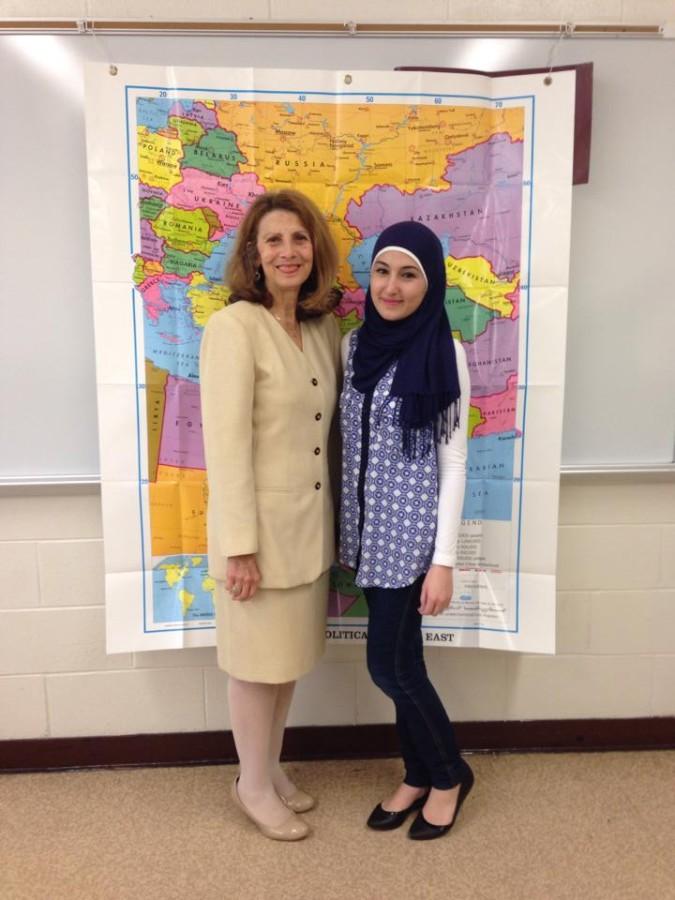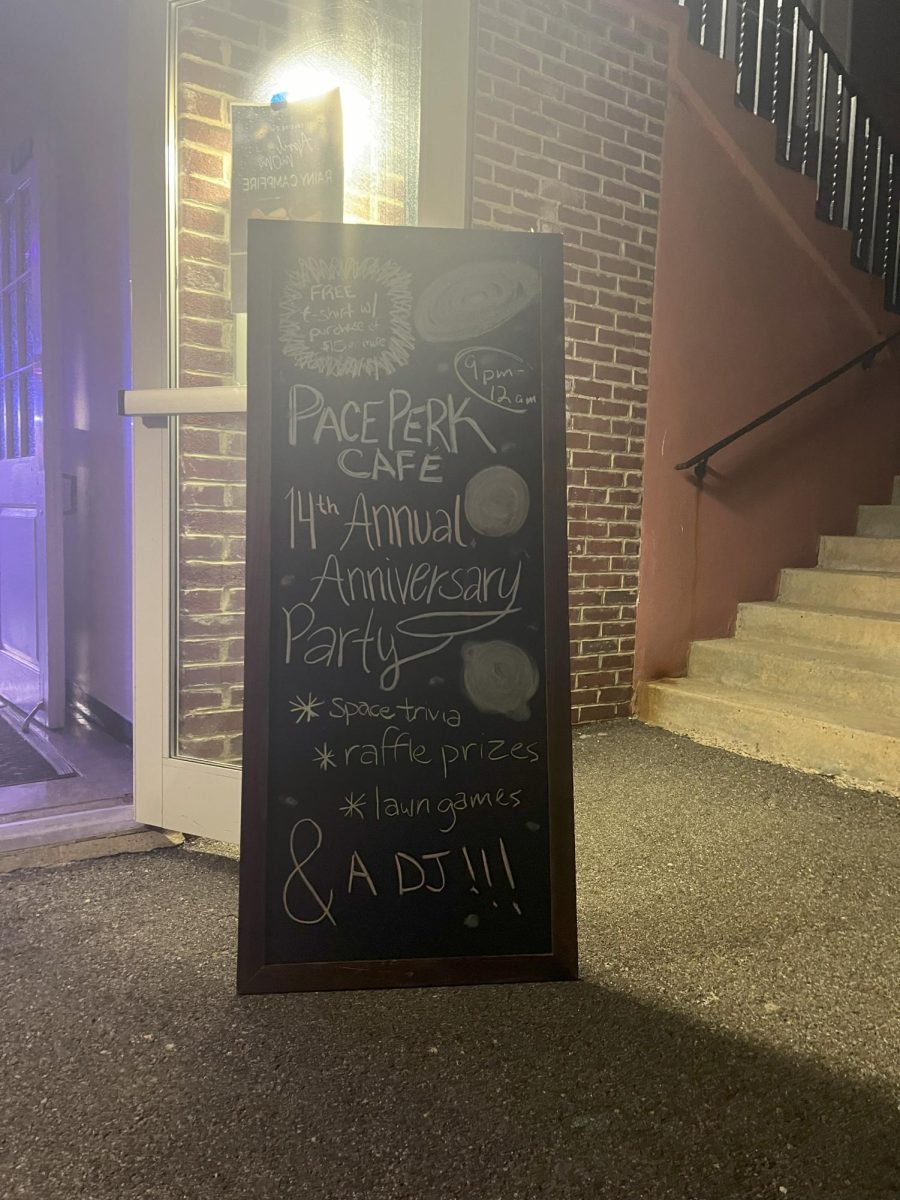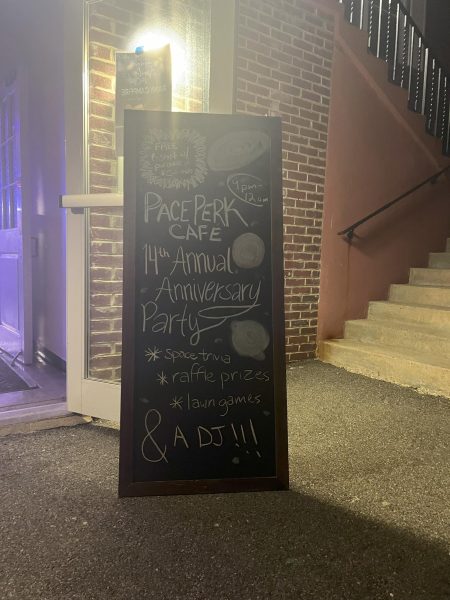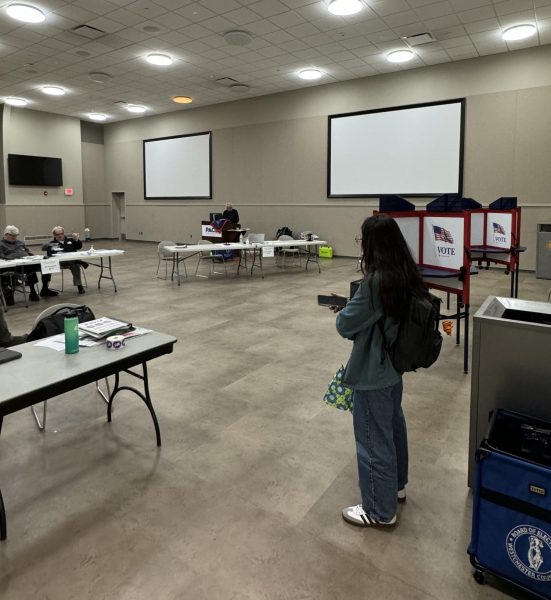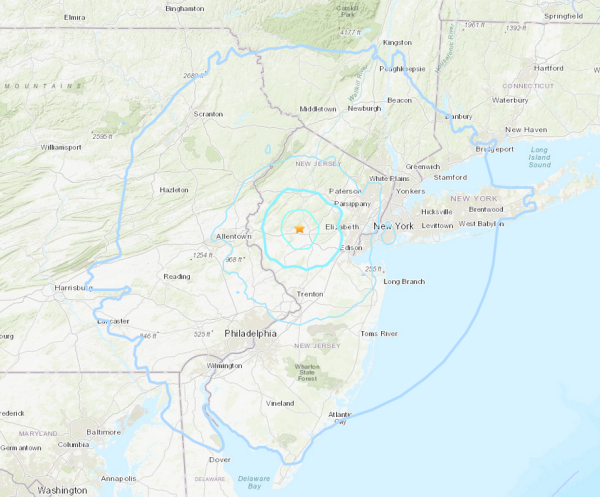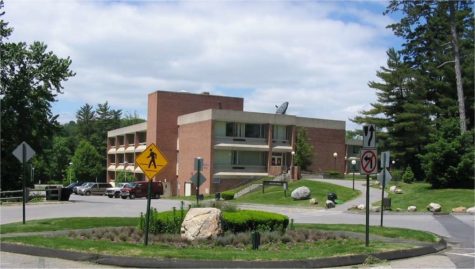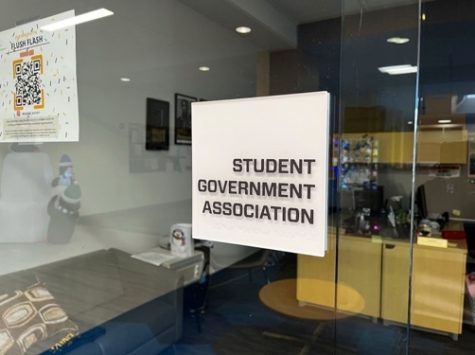Pace Community Speaks Out About Discrimination Against Muslims
May 7, 2014
Professor Joan Katen and freshman Nihal Qawasmi posed with the map of the Middle East following Katen’s Thursday afternoon class, Middle Eastern Politics Through Film.
The Pew Research Center found that 20 percent of Muslim-Americans have experienced discrimination, prejudice, and unfair treatment, according to a study conducted in 2011.
The “Muslim Americans: No Sign of Growth in Alienation or Support for Extremism” study found that 48 percent of Muslim Americans fault their leaders for not speaking up against Islamic extremists and terrorists. The bigotries that the devout Muslims have faced have proven to be unfair, according to Professor Joan Katen of Pace University.
“Some people do not seem to be able to distinguish between the majority of peaceful Muslims who wish nothing but to live in peace with their families and the very few who do not know how to direct their anger except by violent means,” said Katen, who received a full scholarship to Columbia University’s graduate school where she completed her master’s degree in Lebanese Political Parties and National Integration.
Like many of the Muslims who are living in America, Katen’s relatives moved from the Middle East in hopes of escaping oppression. She now dwells in “The Land of the Free” and reaps the benefits that come with liberty and justice for all. However, Katen, who has been teaching topics pertaining to Middle Eastern politics at Pace for over 14years, said that many Muslim Americans are not as widely accepted by American citizens as she and her relatives have been.
“I believe Muslims are being unfairly discriminated against since 9/11,” said Katen, who is a member of the United Nations Association and the Jewish Voice for Peace, both of which work to establish peace in the Middle East. “Many Christians, Jews, and Muslims in the Middle East have come out against violent behavior, be it from individuals or states and their leaders.”
One Pace student, whose family moved to America from Jordan when she was three years old, is of the 48 percent of Muslim Americans who blame their leaders failing to defend their people.
“Islam is literally a way of life that revolves around peace and revolves around helping others,” said freshman Nihal Qawasmi, who said that the original framework of her religion has been lost to Islamic extremists. “[Extremists] are always in the public eye, so they think that violence is what Islam preaches.”
The freshman communications and political science major attributed such misinformation to those who committed the crimes in the name of Islam and those Americans who “blindly” follow the media. Qawasmi also said that Muslim women are struggling with the everyday discrimination that comes with wearing a hijab (headscarf).
The “Muslim Americans: No Sign of Growth in Alienation or Support for Extremism” study found that 69 percent of devout Muslim American women reported that they always wear a hijab, according to the Pew Research study. Qawasmi, who is 18 years old, made the choice to cover her hair when she was 11 years old, though she feels that a hijab is but another misconception made by Americans. In the months that followed the 2001 attacks Qawasmi’s family friend traded in her hijab for a hat as American citizens were allegedly spitting at her. She has since, however, switched back to the hijab.
Though Qawasmi claims never to have been a victim of outward discrimination, she attributed this to her attendance at a private, Islamic school for the majority of her educational career.
“[School] was kind of like a safe-haven to me,” Qawasmi said. “[The hijab] has become a very big part of me and it’s something I would never give up or can imagine myself without. I’ve taught myself to never let anyone make me feel inferior, and to stay true to my beliefs, because I know what’s right for me.”
Qawasmi did say that the Pace community has demonstrated genuine interest in her culture, as she claimed that many students often question why she wears her hijab.
“I can tell when something is pure curiosity as opposed to discrimination,” Qawasmi said. “Everyone has been welcoming since I got here. Pace is really diverse in that.”
Pace supports Muslim Americans through its on-campus organizations such as the Muslim Student Association (MSA) and the Students for Justice in Palestine (SJP), which Qawasmi is helping to bring to campus next fall.

